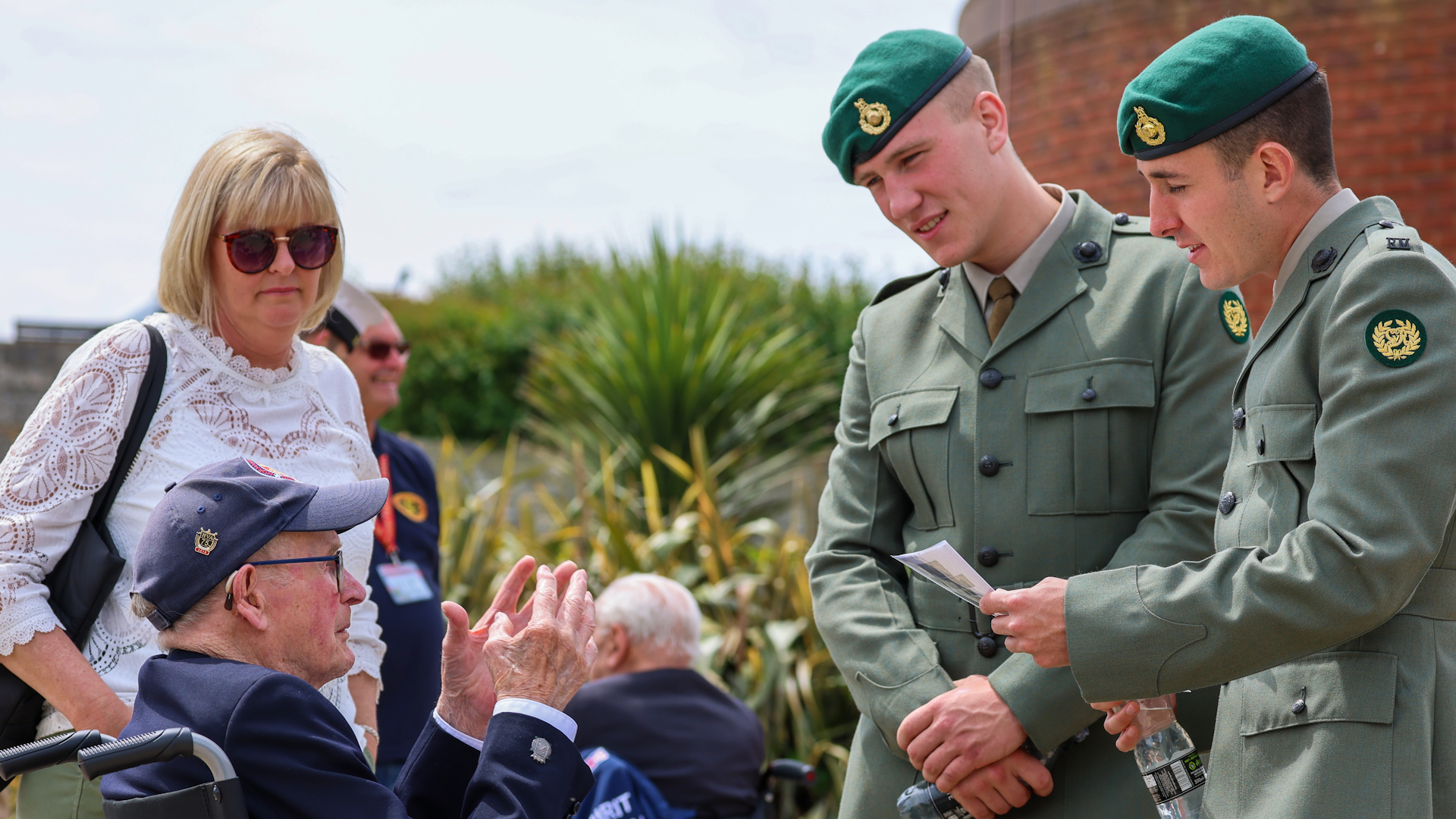
Veterans share experiences with today's service personnel ahead of D-Day commemorations

Normandy survivors have been sharing their stories of D-Day with today's generation of military personnel from all three services.
The veterans, the youngest of whom is 98, told of their service during the Second World War before heading to France to commemorate 80 years since D-Day.
They will take a large Landing Craft Utility to Normandy to support 80th anniversary commemorations, resulting in memorial events in Port-en-Bessin - a village liberated by the Commandos in 1944.
Veterans were invited to tell their stories to personnel and the general public at the D-Day Museum in Southsea, as well as light the first of 14 torches as part of the Commonwealth War Graves Commission's 'light their legacy' campaign.
All the veterans present were frail, using walking sticks or wheelchairs, with 2024 likely to be the last time D-Day veterans are seen gathering in any significant number.
One of those, 98-year-old former Royal Marine Keith Whiting had a smile from one ear to the other as he found himself among the ranks of 47 Commando.
He was one of those Marines in an X-Turret on 6 June 1944 sending 'iron greetings', or 15in shells, to the German defenders from HMS Ramillies.
The umbrella of shell-fire helped protect the troops assaulting the beaches in 1944.
Mr Whiting said two things stuck out from that momentous day: the battleship's skipper wearing a Maori ceremonial skirt over his trousers all day for good luck and the number of shells fired by the ship.
So many rounds were fired that the barrels needed replacing a few days later.
The ship was called in to support the advance of Allied armour, with spotter planes pointing the guns towards a wood blocking the path of the tanks.
"By the time we’d finished the shooting, there was nothing left of the wood," Mr Whiting recalled.
"Health and safety?" Mr Whiting laughed.
"We shoved bits of toilet paper up our noses and in our ears. After a while you’d start to bleed, so you left the turret, took a break, replaced the toilet paper and went back to your post."
Another veteran attending the event was John Dennett, who had conducted amphibious operations before in North Africa as well as Salerno and Anzio in Italy.
"I saw a bit of the world before bloody Normandy," he said.
On D-Day, he crossed the Channel as an anti-aircraft gunner and said seeing the armada crossing alongside him filled him with confidence.
"The sight was unbelievable and I knew there and then we were part of something big, you felt that nothing could happen to us," he said.
"We had no idea of the bigger picture – we were aware of the chaos and carnage around us, the tide bringing bodies back in.
"It was only later that you begin to realise how lucky you were – it could have been any one of us lost."
In later life, Mr Dennett, from Wallasey, Wirral, made it his mission to educate on the sacrifices his comrades made on D-Day, as well as help those PTSD from more contemporary conflicts such as Afghanistan.
As a result of his work, he received the British Empire Medal.
"That means more to me than any other medal I’ve received," he said, with his jacket covered with medals from his WW2 service.
Samuel Rudge, a serving Royal Marine, described his involvement in the day as a "privilege".
"The veterans are inspirational, they inspire us and events like today or going across to Normandy allow us to show how much we appreciate them," he said.
Another Marine, Archie Smoker, said one word summed up the achievements of the D-Day generation: admiration.
"We cannot be more grateful for what they did for us," he said.
"Now, with the veterans almost all gone, you have to remember their sacrifices for the freedoms we enjoy.
"And it is something we will never forget."









